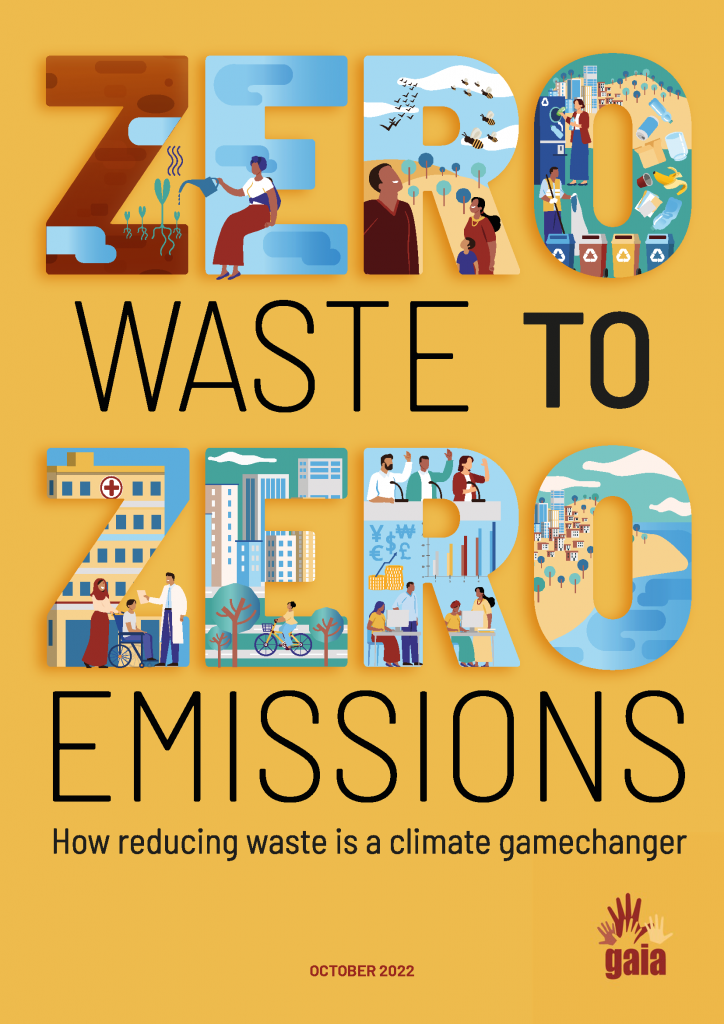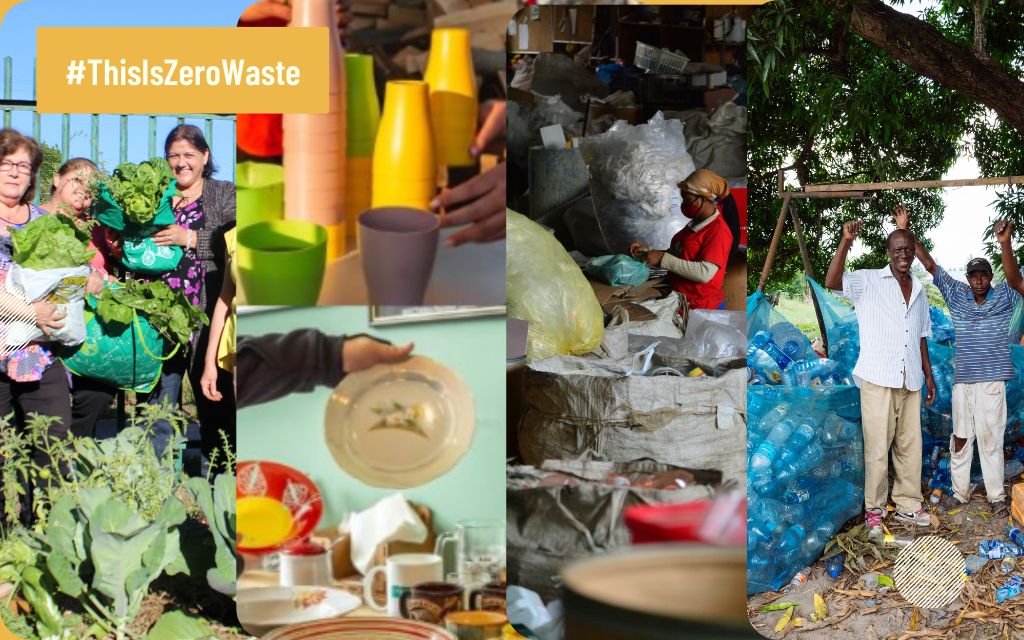Resources
Webinar: Zero Waste Circular Economy, Waste-To-Energy & Landfill
This presentation aims to make a comparison between the Waste-to-Energy system and The Zero Waste Circular Economy system, in terms of determining the best mechanism for diverting waste from landfills – as part of an important learning exchange necessary to help key decision-makers make the right choice given its significant environmental and socio-economic Impact. Most landfills in the Western Cape Province in South Africa are nearly full.
To address the landfill crisis, the South African Department of Environmental Affairs has issued a directive that all municipalities must divert 100% of their organic waste from landfills by 2027. Some municipalities are struggling to change from their landfill system; a few others are considering Waste-to-Energy (“WTE”) as an option; and other municipalities are considering or pursuing the zero organic circular economy system to Divert their organic waste from landfills. There are several instances around the world where the choices made between the Zero Waste Circular Economy system and the WTE and Landfill Systems have had a profound environmental and socio-economic impact on their municipalities and communities.
The State of Zero Waste Municipalities – 5th edition
The State of Zero Waste Municipalities is the most comprehensive overview yet of the work happening in Europe with municipalities to accelerate our transition towards zero waste. Furthermore, it includes updates from global regions about the progress being made with zero waste cities around the world, from Accra to Santiago.
The report also takes a deep dive into four of Europe’s best practice policies regarding textile waste, given its central focus for most municipalities today since the new introduction of the mandatory separate collection requirement at the start of 2025.
This fifth edition of this report takes a much stronger look at waste prevention measures being implemented in European cities. For example with Tallinn, who has achieved a 92% return rate for reusable tableware at city events and established over 10 municipal reuse and repair hubs. Or Komunala Škofja Loka in Slovenia, who have prevented 23,000 single-use cups with their rental service in 2024. Similarly, Zagreb has seen landfilling drop by 20% and separate waste collection rise by 50%, partly due to measures like banning single-use plastics in public buildings and increased door-to-door collection of materials.
We are more confident than ever in the power of stories to change the world. After reading the stories in this report, we hope you’re inspired to begin writing your own.
Full report available in English and many other languages, visit Zero Waste Europe to download the report.
DR PAUL CONNETT ON THE BENEFITS OF ZERO WASTE
Dr. Paul Connett, Professor Emeritus in Environmental Chemistry at St. Lawrence University, Canton, NY. Dr. Connett addresses the health and safety concerns of waste to energy incineration as well as the benefits of ZeroWaste.
global zero waste summit presentation
ZERO WASTE TO ZERO EMISSIONS: HOW REDUCING WASTE IS A CLIMATE GAMECHANGER

A report by the Global Alliance for Incinerator Alternatives (GAIA) provides the clearest and most comprehensive evidence to date of how better waste management is critical to the climate fight, while building resilience, creating jobs, and promoting thriving local economies.
GAIA PUBLIC DECLARATION ON UN INTERNATIONAL DAY OF ZERO WASTE
On the first annual United Nations International Day of Zero Waste on March 30, the Global Alliance for Incinerator Alternatives (GAIA) has released a public declaration signed on by over 250 organizations in almost 60 countries representing zero waste practitioners, policy experts, and community groups. The declaration defines the principles and essential components of “zero waste” that governments must adhere to in order to successfully tackle our global waste problems.

DECLARATION
INTERNATIONAL ZERO WASTE DAY
30 March 2023
Zero waste to transform the world!
The Global Alliance for Incinerator Alternatives, GAIA, is a network of grassroots groups and national and regional alliances representing more than 1000 organizations from 92 countries building a future that protects nature instead of turning it into waste. We work to change personal and collective practices through popular education, community organizing, implementation of zero waste systems, and public policy advocacy at local, national, and international levels.
We are overjoyed with the United Nations’ decision to proclaim March 30th as International Day of Zero Waste. This recognition of the importance of zero waste reflects decades of socio-environmental activism, led by organizations around the world working side by side with the communities most impacted by environmental and social injustices caused by a global system of overproduction and consumption of natural resources.
On a day like today we want to reaffirm that zero waste is the conservation of all resources by means of responsible production, consumption, reuse, and recovery of products, packaging, and materials without burning and with no discharges to land, water, or air that threaten the environment or human health.
As organizations at the forefront of zero waste principles and strategies, we want to emphasize that any program that uses the term,”zero waste” must keep the focus first and foremost on reducing and preventing waste, through the following actions:
- Invest resources and issue policies that prevent waste generation and disposal.
- Minimize disposable products and find ways to replace them with durable, reusable alternatives.
- Develop ways of distributing products without the use of disposable packaging, using packaging made of materials that are easy and safe to reuse or failing that, recycle or reinsert into biological cycles at the end of a long lifespan.
- Transform the production system to manufacture necessary, durable, and repairable products first and foremost, or at minimum , made of biodegradable or safely recyclable materials.
- Promote the development of local economies that shorten the distance between those who produce and those who consume, favouring the use of returnable and washable packaging and the sale of products in bulk.
- Reclaim people’s food sovereignty– growing toxics-free, healthy food to feed and not just to profit, minimizing food waste and redistributing surplus food before it loses its nutritional qualities.
- Where recyclable discards are generated, manage them locally, and where waste workers groups or cooperatives exist, involve them in the whole waste management system.
- Recognize the role and contribution of grassroots waste workers and waste pickers in the zero waste system.
- Avoid as much as possible the use of synthetic fibres in clothing and textiles, and confront the wastefulness of “fast fashion.”
- Avoid waste exports that perpetuate colonialism, injustice and inequity.
- Eliminate waste incineration – in any form – from waste management programmes.
In short, zero waste means extracting from nature only what we need, and ensuring that all communities flourish, while respecting planetary boundaries for regenerate what we take, and to absorb what we give back to nature.
The organizations signing this declaration call on United Nations Member States to join our efforts to build zero waste initiatives in all corners of the planet. These initiatives must restore justice to the communities that bear the burden of pollution from waste disposal, the extraction of virgin raw materials, and industrial manufacturing processes, and above all restore justice to nature, without which there is no future for humanity.
